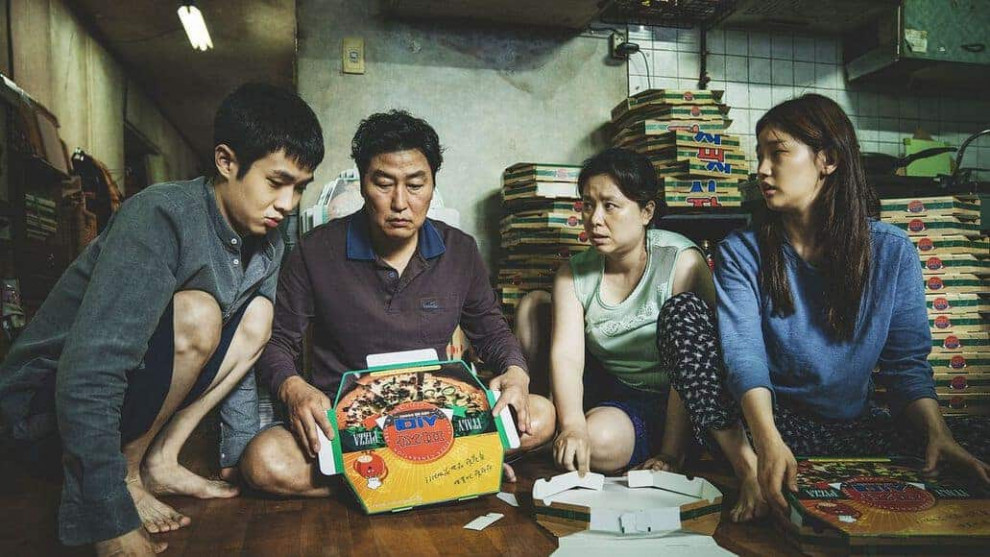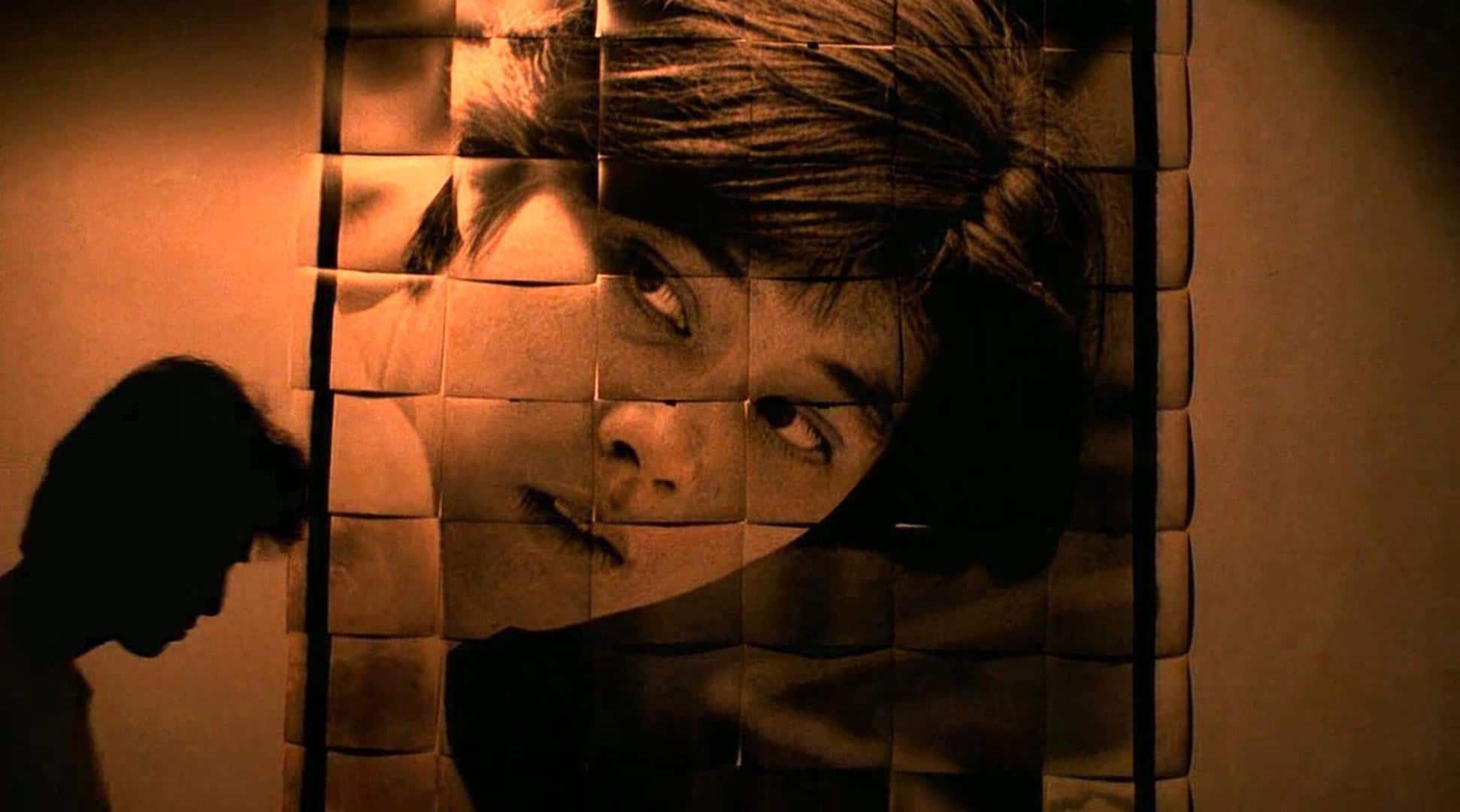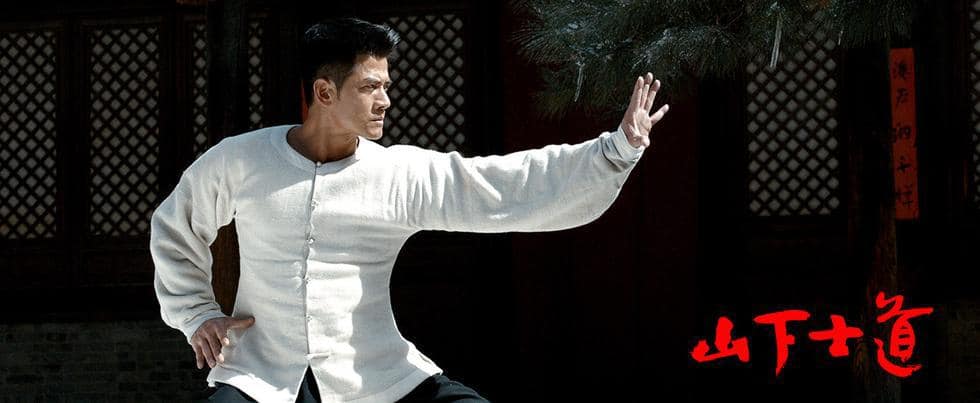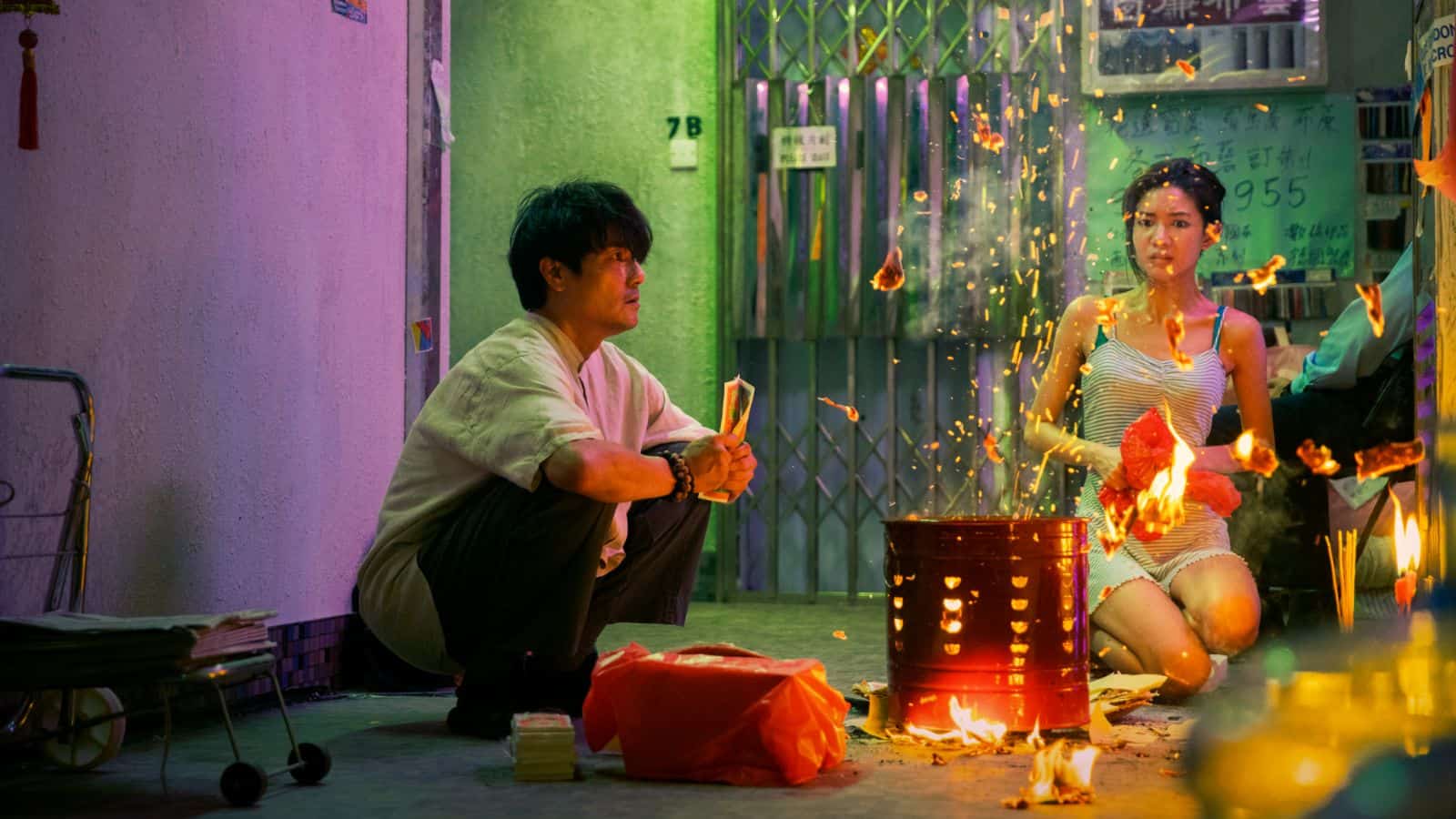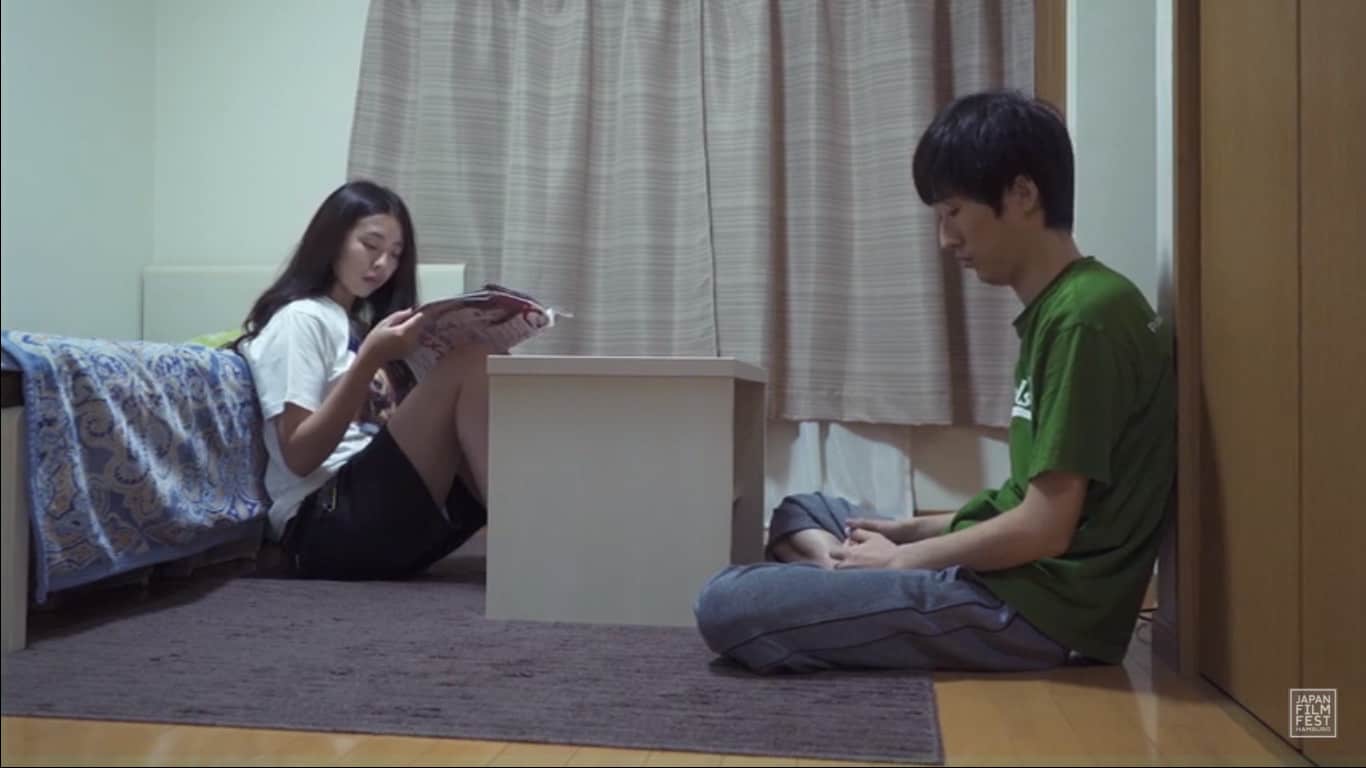I have to admit that this is one of the most difficult reviews I have written during the last years. Not because the film is not good (it certainly is), but because the hype following the Cannes Award was so significant that I expected a complete masterpiece, a hype that in the end faulted my final impression of the movie. Let us take things from the beginning though.
Parasite screened at the 27th Art Film Fest Kosice
The article is filled with spoilers. Better not read if you have not watched the film yet
The film revolves around two radically different families; one headed by poor-devil, unemployed Ki-taek, and the other by the extremely rich Mr Park, the owner of an international IT firm. While Ki-taek and his wife, Hye-jin and two children, Ki-woo and Ki-jung struggle to make ends meet any way they can, and a heavy rain destroys even their tiniest ray of hope, Mr Park and his wife Yeon-kyo, along with their children, Da-hye and Da-song, enjoy their luxury while playing “survivors” under the same circumstances. However, when Ki-jung finds a tutoring job at Park's house through an old school friend (with a fake degree, of course) things seem to pick up for the poor guys, particularly since Ki-woo is an immediate hit with the whole family, something that, through some almost surreal events, brings the rest of the “crew” in the same place.
However, a seemingly loyal housekeeper named Moon-gwang, is soon revealed to be something completely different, while another “family”, even lower than Ki-taek's, also reveals its existence.

Let me start with the obvious, context-wise. Bong Joon-ho has included a plethora of socially comments (questions if you prefer) in the film, some quite evident and some a bit less (even ambiguous one could say). The first one revolves around the title, playing with the concept of who the “actual” parasites are. Are the poor people, who try to con the rich in order to gain from their wealth, or are the rich, who give nothing to the poor, exploiting them as work fodder in order to make their money?
The main one, however, revolves around the three (according to Bong) different levels of the hierarchy of (Korean) society. The rich, the poor, and the “invisible” ones – the ones lurking outside society, in essence. This “caste” system actually forms the main axis of the narrative, with the majority of events and comments in the film deriving from it. The fact that the poor want to take the place of the rich only to put some other people in the place they used to be is one. The way the two different castes perceive each other (the smell factor is a cruelly realistic one) is the second. The fact that nothing changes regarding social and financial place, as poor are just replaced by other poor waiting to be exploited by the rich, who seem to have reserved their status in perpetuity, is the third one. The fact this perpetual injustice is bound to lead to violence, which in itself, leads nowhere though, is the fourth.
Regarding characterization, Bong presents a story where almost every individual is flawed, capable of either intense stupidity or villainy, with the rather violent sequence in the garden highlighting this fact and the fourth comment, in the most impressive fashion, in probably the most memorable scene in the film.
And while the comments and the general context of the film are more than interesting, what bothers me is that Bong chose a rather obvious way to communicate everything, in essence almost spoon feeding these themes to the audience, despite the permeating smart irony. This “feeding” may be harsh and in that fashion, mirroring contemporary Korean society (as my friend Bastian Meiresonne mentions) but I think that a little more subtlety would have helped both the aesthetics and the context of the film, which, at times, looks very simple. For example, the way he separates the three castes, by having the rich live above the ground, the poor at ground level and the invisible in a basement, could not get more obvious.
This spoon-feeding is a distinct element of Hollywood films, and I think that the mainstream aesthetics Bong experienced in his time there influenced him significantly, something that is also evident in the elements of naivety in the story, particularly regarding the way all members of the family end up working in the same house. Furthermore I felt that the naivety of the rich and the cunningness of the poor presented here goes a bit too far, even in cliche terms. The same also applies to the ending, although to a lesser degree.
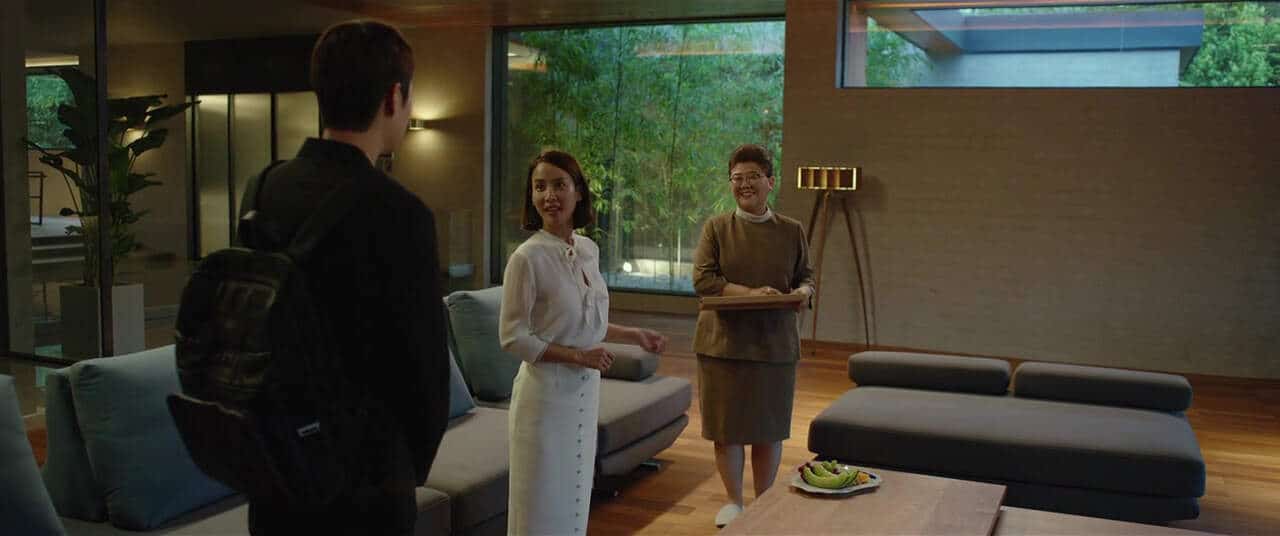
On the other hand, the entertainment this combination of crime thriller and social drama offers is undeniable.
The artistry in Hong Kyung-pyo's cinematography and Lee Ha-jun's set design is undeniable, with the two of them implementing a style much similar to Park Chan-wook's “The Handmaiden”, with the luxuriousness of the upper floor coming in complete contrast with the almost gothic style of the basement, and the somewhat dramatic realism of Ki-taek's rundown house. The maximalism of Park's film may have been substituted by an elegant “designer's” minimalism in the main house of “Parasite”, but I felt that basic visual premises are quite similar, which is obviously a tick in the pros column. The stylistic excellence is also evident in the sex scene, which, for once, is truly original.
The acting is one of the movie's best assets, particularly due to the transformations a number of character exhibit. Song Kang-ho as Ki-taek plays the poor devil that transforms into something completely different with his usual prowess. Cho Yeo-jeong as Yeon-kyo highlights her naivety in the most entertaining fashion, while Lee Sun-kyun as Mr Park is excellent as the exact opposite of Ki-taek, in both appearance and composure. Choi Woo-sik is also good as Ki-woo, a man willing to exploit his appearance to get what he wants.
“Parasite”, undeniably, is an excellent film. However, I felt that Bong Joon-ho had managed to be smarter in the past (in “Memories of Murder” or “Mother”, for example) regarding the messages he wanted to communicate, and it is this element that strips the film of the title masterpiece.


